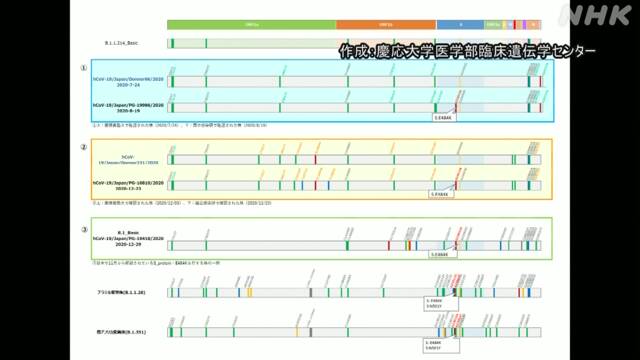A group from Keio University has announced the results of an analysis of a mutant virus of the new coronavirus that may have caused mutations in genetic information that may weaken the immune system in Japan.
This analysis was presented by a group of Professor Kenjiro Kozaki of Keio University School of Medicine.
The group analyzed in detail the genes of the virus for about 4,400 people whose genetic information has been released and detected in infected people in Japan.
As a result, 64 viruses with a mutation called "E484K", which has been pointed out as having the possibility of weakening the immune system, were found.
Of these, 62 are thought to have been brought in from overseas due to genetic characteristics, but the mutant viruses for 2 of them collected in August and December of last year are the viruses that are prevalent in Japan and genetic information. Is very close, and it turns out that there is a high possibility that the mutation has occurred in Japan.
Mutations in "E484K" have also been found in mutant viruses that have spread in South Africa and Brazil, but unlike these, none of the viruses analyzed this time have been mutated to increase infectivity.
Professor Kozaki said, "This time, we found a small number of viruses that seem to have mutated in Japan. It is necessary to widely monitor the mutated virus, keeping in mind that it may occur not only from overseas but also in Japan. There is. "

